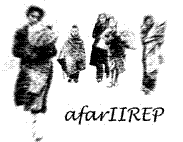Provisional version
Recommendation
Adopted by the Standing Committee, 17 March 2006
1. The Parliamentary Assembly strongly condemns the extensive and wide-ranging human rights abuses committed by the Franco regime in Spain from 1939 to 1975.
2. There is still an ongoing debate underway in Spain to draw up a full account of the Franco dictatorship's crimes which was launched in the 1980s and which has been further intensified under the present administration.
3. Initiatives started in the early 1980s, aimed at the withdrawal from public places of symbols of the Franco dictatorship including statues, names of streets and some colleges named after Franco and his generals, have been quite successful.
4. The Assembly hopes that the present debate in Spain will result in a thorough and in-depth examination and assessment of the Franco regime's actions and crimes. In particular, the Assembly looks forward to the results of the work of the Interministerial Commission for the Examination of the situation of Victims of Civil War and the Franco Regime, established in October 2004.
5. At the same time, the Assembly underlines that the violation of human rights is not an internal matter of a single country and therefore the international community is as much concerned as the Spaniards themselves.
6. The awareness of history is one of the preconditions for avoiding similar mistakes in the future. Furthermore, moral assessment and condemnation of committed crimes plays an important role in the education of young generations.
7. The Assembly stresses that the Council of Europe is well placed for a serious discussion on the subject. In accordance with its fundamental principles it should condemn the crimes and violation of human rights under the Franco regime at international level.
8. The Assembly therefore calls on the Committee of Ministers to:
8.1. adopt an official declaration for the international condemnation of the Franco regime and to mark 18 July 2006 as the official day of condemnation of the Franco regime as it marks the 70 th anniversary of the beginning of the Spanish civil war and Franco's overthrow of the Government;
8.2. urge the Spanish Government to:
8.2.1. set up a national committee to inquire into violations of human rights committed under the Franco regime which would submit its report to the Council of Europe;
8.2.2. continue to make available to all historians and researchers all civilian and military archives which may contain documents that can contribute to establishing the truth regarding repression;
8.2.3. set up a permanent exhibition in the underground basilica at the Valley of the Fallen outside Madrid – where Franco is buried – explaining the way it was built by the republican prisoners;
8.2.4. encourage local authorities to erect memorials as a tribute to the victims of the Franco regime in the capital of Spain and in other major Spanish cities. |

